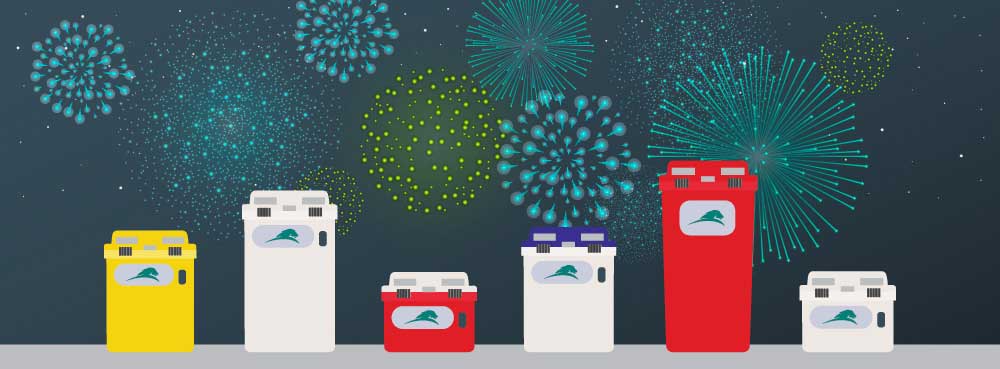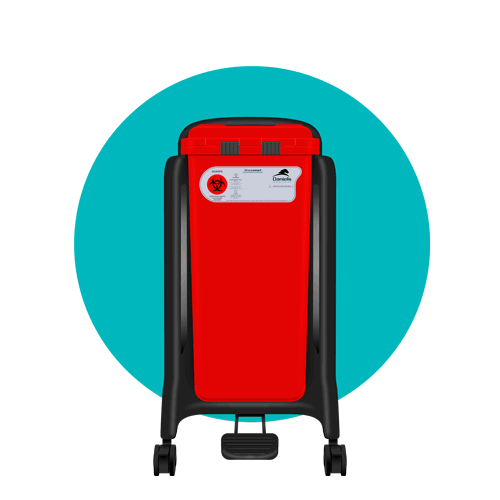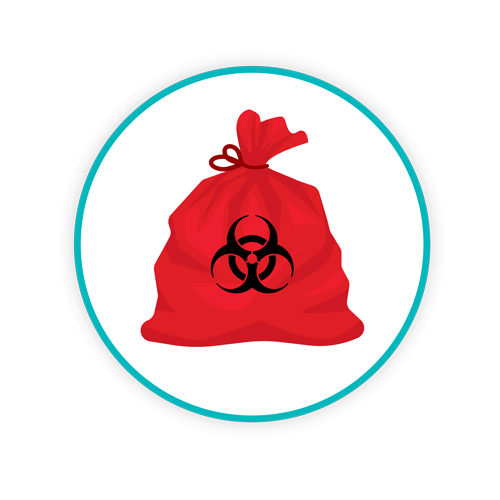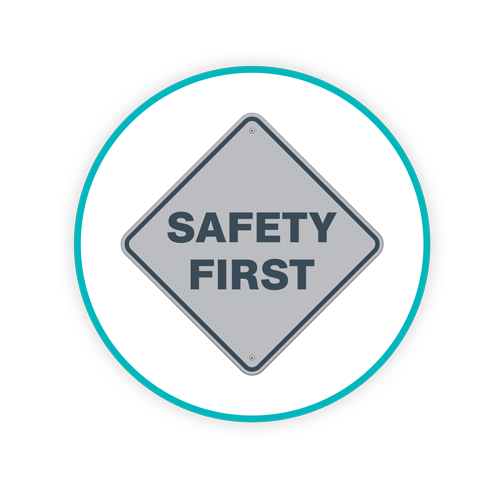5 Healthcare Waste Management Resolutions to Make in 2021

As much as we may want to reference the last year like Voldemort, the year that must not be named, we have to call 2020 what it was: an unprecedented year for the global community and especially healthcare. We come into this new year with a protective layer of caution and glimmers of hope for what a new normal could mean.
The Daniels Health team was founded on the knowledge that healthcare waste management impacts infection control. With our 30+ years of experience, we want to help your facility start 2021 as best you can by providing a few key strategies to consider that will impact your safety, costs, and labor efficacies. Consider the below resolutions with your team and fellow healthcare colleagues – resolve to create a new normal that prioritizes your safety.
5 Healthcare Waste Management Resolutions
01 / Leave plastic liners in 2020
02 / Choose hands-free disposal methods
03 / Educate on safe waste handling
04 / Critically look at your service
05 / Advocate for safer solutions

01 / Leave plastic liners in 2020
Unnecessary plastic use is not great; the turtles know it and so do we. While it is common for healthcare to use a plastic bag and a static kick bin or cardboard box – there is another, safer and more sustainable way.
Your facility could resolve to trial a bagless, hands-free container method – like the Medismart.
When using the Medismart, a container that requires no secondary packaging, the bag is eliminated which means that neither the inside of the container or the disposed waste is ever touched, removing risk of cross-contamination and infection transfer risk. Once the container is full, it is permanently locked and transported to a soiled utility room until pickup. Full containers undergo a decanting and 6-stage sanitization process at Daniels Health processing plants
With this one resolution, you can minimize plastic use, improve infection control, and welcome a container that is regularly sanitized.
Which brings us to the next thing to consider…
02 / Choose hands-free disposal methods
Another lesson from 2020: surface touches impact the spread of germs. Why not extend this lesson to your healthcare waste containers? After all, these are systems that hold biohazardous waste that, by definition, are hazardous. How many times must you or a team member touch a bag, a box, a container during the disposal process? How often are static containers cleaned?
If you want a simple way to up your infection control in 2021, think about your bin. Map the waste movement and the touches from disposal to waste pickup – you’ll be surprised with what you learn.
Did you know that all Daniels Health reusable containment systems are designed to be hands-free? We have no-touch container solutions for:
Video of our hands-free RMW disposal
03 / Educate on safe waste handling
Daniels Health is committed to your compliance – which is why it is key each member on your team who handles, packages, or signs off on medical waste manifests is DOT Hazmat/RMW certified.
The mission of the Occupational Safety and Health Administrations (OSHA) is to save lives, prevent injuries and protect the health of America’s workers. One of the way’s OSHA achieves this is through US DOT Hazardous Materials Regulations (HMR).
US DOT “hazmat employee” training rules apply to any company with employees who perform any function which is in any way regulated by the US DOT Hazardous Materials Regulations (HMR). This includes any organization with employees who:
- Offer hazardous materials for transportation
- Package, mark, or label hazardous materials for transportation;
- Load or unload hazardous materials transport vehicles
- Transport hazardous materials
- Receive and forward packages containing hazardous materials
- Sign off on DOT Hazmat shipping papers
If your staff requires this training, our team can help through our online compliance portal offering – click here for more information.
04 / Critically look at your healthcare waste management service
It’s important to have the right people on your infection control team – and your healthcare waste management partner is part of that team.
What makes a good waste management partner?
- Effectively service your requirements in terms of service and pick-ups
- Provide clean and effective containment systems
- Provide reports back to the facility on the number of containers picked up, pounds of waste disposed of, types of waste disposed of, and provide copies of manifest/Certificates of Destruction
- Provide benchmark reports to assess the of waste management
Can your partner provide:
- Proof of state and local permissions to haul waste
- A Certificate of Insurance (COI)
- The permits to dispose of waste
- Cradle-to-grave responsibility?
And finally, in critically looking at your partnership, when was the last time you checked your waste management invoice? It’s important to perform regular audits to understand if your costs are surging and to find out why.
05 / Advocate for safer solutions
Did you know that OSHA law requires health systems to allow clinical staff to drive clinical studies based on safety? It’s true! You hold the power to create a safer healthcare environment.
For example, if you are impressed with how Daniels offers healthcare waste management that is designed for:
- Clinical safety
- The reduction of touchpoints during waste disposal
- Optimum placement for increased safety during disposal
But you’re not sure if you can get our systems in your facility long-term because of your current partnership – request a departmental clinical trial.
OSHA standards mandate that all hospitals on an annual basis show that they have considered and implemented any safer methods of disposing of sharps. Facilities are sighted frequently for not evaluating new sharps containers because of cost or contractual agreements The OSHA bloodborne pathogens regulations, specifically section 1910.1030(c)(1)(iv)(B), says that hospitals need to document annually consideration and implementation of appropriate commercially available and effective safer medical devices designed to eliminate or minimize occupational exposure.
Make 2021 a record year for infection control with your healthcare waste management strategy
You now have 5 tips on how you and your clinical team can positively impact your safety when it comes to medical waste management. The Daniels Health team is dedicated to providing you relevant and useful tips for waste management strategy all year long – whether you are partnered with us or not.
If you’re feeling excited about this new year and new opportunities for safety, click here to speak to our team for a healthcare waste management strategy consultation.
Let's Talk!
Your time is valuable, and we don’t want to play hard to get. You can either phone us directly on the details listed on our contact page, or feel free to fill out this short form and one of our team members will get back to you as quickly as possible.
